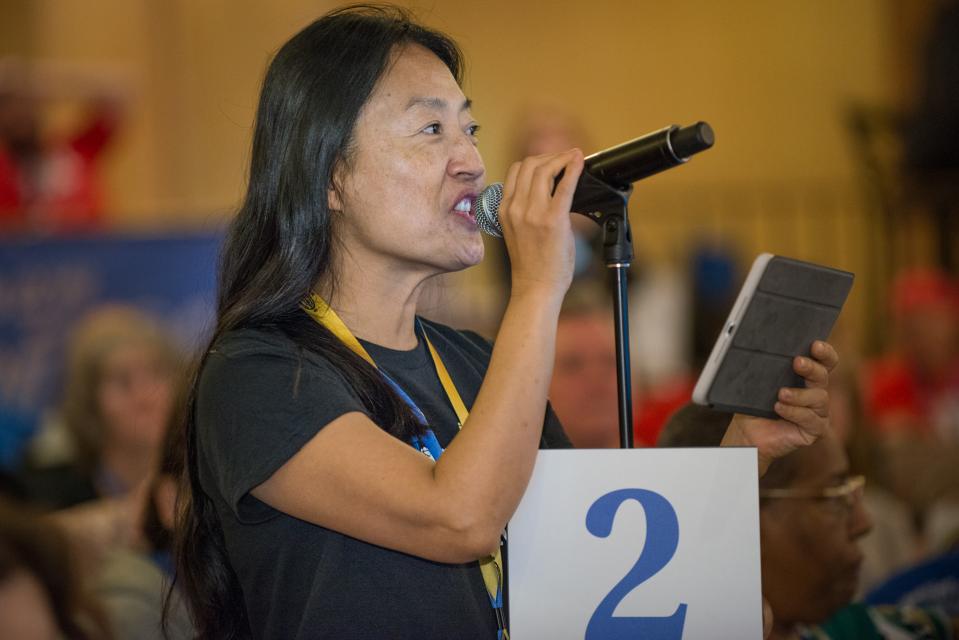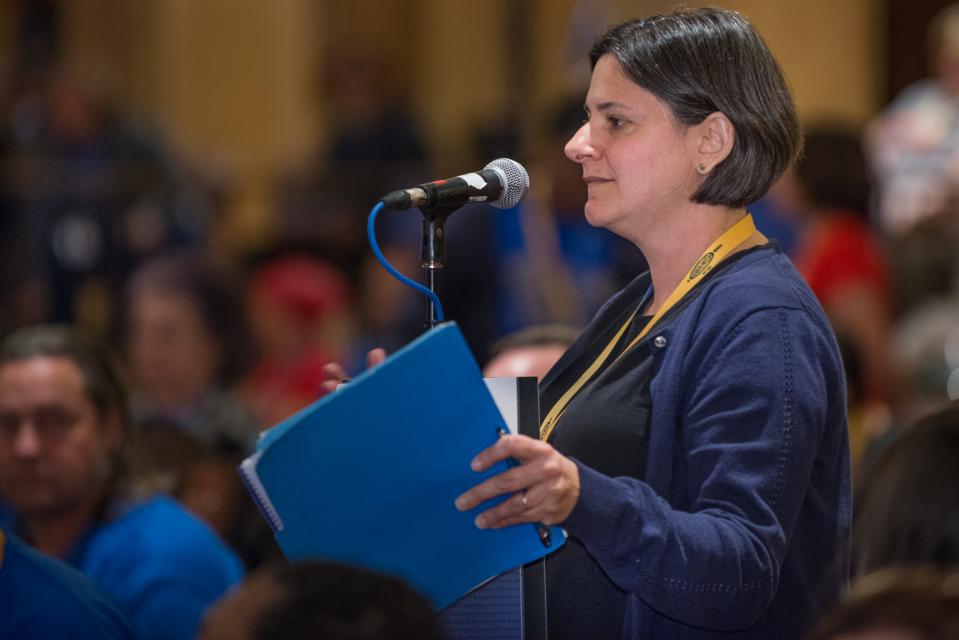While the issues of pay inequity, the lack of job security, and access to health benefits are major challenges that plague part-time faculty —collegiality, inclusion, and connection with their campuses and fellow faculty are also important for a part-time faculty member’s long-term involvement with a particular institution.
Key to increasing adjunct involvement and connection in the California community colleges is increasing both the opportunities for and compensation of part-time faculty participation in shared governance.
At this year’s CFT Convention in March, delegates passed the Part-Time Faculty Committee’s Resolution 9 calling “part-time faculty to be included and compensated for their shared governance work.”
The concept of shared governance at the community colleges was enshrined into law with the passage of the 1988 omnibus community college reform legislation AB 1725, which calls for the establishment of procedures to “… ensure faculty, staff, and students the opportunity to express their opinions at the campus level and to ensure that these opinions are given every reasonable consideration, and the right to participate effectively in district and college governance, and the right of academic senates to assume primary responsibility for making recommendations in the areas of curriculum and academic standards.”
“Shared governance,” as CFT Part-Time Faculty Committee Co-Chair Linda Chan said, “should include all segments of the community and yet one of the segments is rarely included or compensated—that is part-time faculty. This is not shared governance.”
Despite the passage of AB 1725 some 30 years ago, there is still a significant lack of part-time faculty participation and involvement in shared governance. Most if not all community college senates have no more than five seats specifically designated for part-time faculty.
At Palomar College, where 74.6 percent of faculty are adjunct, just three out of 27 senate positions are designated for part-time faculty, and adjuncts are not allowed to hold officer positions. At West Los Angeles College in the L.A. district, there are only two part-time designated seats, and part-time faculty are not allowed to vote for senate officers or at-large positions. Kenneth Tiara, a West Valley adjunct academic senator, described the situation as “pretty dismal.”
Part of the rationale given for the low number of part-time faculty designated seats is that often such positions will go unfilled, or that part-time faculty are largely perceived as being uninterested in shared governance. What is not often taken into account is that by and large, there is often no, or very limited, monetary compensation for part-time faculty either serving on an academic senate or on key shared governance committees such as those involving curriculum, budget, or professional development.
Many districts do not provide compensation to part-time faculty for sitting on academic senate. At others, such as Palomar College, adjunct senators receive only a $500 annual stipend.
Some might argue that full-time faculty are often not compensated for all their shared governance work. That said, part-time faculty are usually only paid for their time in the classroom, or partially for their office hours, and then only at a fraction of what full-time faculty receive. Further, full-time faculty are hired with the understanding that at some point during their careers, they must do committee work or participate in shared governance as part of their job responsibilities.
Often the limited opportunities and compensation for shared governance, which extend to academic senate and committee work, is justified by the presumption, as expressed in a recent bargaining forum by one full-timer, that part-time faculty “had no skin in the game.” In other words, part-time faculty have little concern or responsibility when it comes to curriculum and instruction.
Adjunct faculty like Brad Balukjian at Merritt College in the Peralta Community College District would strongly disagree. Despite not being compensated, Balukjian sits on the college’s Curriculum and Budget Committees where he puts in between 14-20 hours a month. There are in fact countless examples of part-time faculty doing such uncompensated work throughout the state.
Balukjian noted that at Merritt College, there are other areas of shared governance and professional development for which part-time faculty can be compensated, but that many are simply unaware of the opportunities. He is now currently receiving a $300 stipend to organize and manage a listserve of part-time faculty at Merritt to inform them of both shared governance and professional development opportunities.
– By Geoff Johnson, English and Humanities instructor, and member of the AFT Guild, San Diego and Grossmont-Cuyamaca Colleges, AFT Local 1931



